 Abengoa
Abengoa
Annual Report 2010
- Activities
- Business Units Activities
- Environmental Services
- Our Business
Our Business

Befesa operates in two key areas: industrial waste recycling and water generation and management.
The industrial waste recycling market’s main growth drivers are the rapidly expanding world population and the increased pressure from environmental laws and regulations.
These two macro trends are dictating the development and evolution of the market in which Befesa carries out its industrial waste recycling activities. Existing legislation and policies governing the environment do however vary considerably between countries and regions. For example, environmental regulation in Asia is still in its infancy, while companies operating in the United States or Latin America face more severe control. As these regions gradually adopt tougher regulatory policies, the market for industrial waste treatment and recycling will slowly open up.
The steel waste recycling business has experienced sharp year-on-year growth on the back of the gradual recovery of the European steel production industry. Aluminum waste recycling also rallied to return to the highs reported several years ago, driven largely by exports and government aid plans.

The water generation and management market is currently witnessing huge growth, with heavy investment expected to flow in from all regions of the world. The territories tagged as key with the greatest investment potential are currently the United States, China, the Middle East, India, North Africa and Latin America. This growth is mainly due to two global-scale events: on one hand, the world’s growing population and, on the other, the scarcity of water resources, both magnified by the effects of global warming.
At present, the water market is highly fragmented, both in terms of water management companies and those that supply the technology, essentially meaning construction and engineering firms.

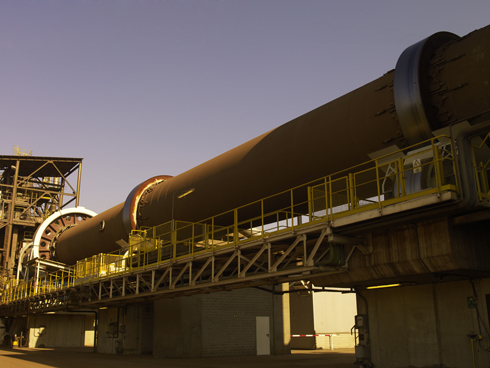
Befesa aims at provide technologically innovative and viable solutions for industrial waste recycling and water generation and management, with the ultimate goal of becoming a world reference in the sectors in which it operates, while helping to forge a more sustainable world. This commitment is reflected in Befesa’s various lines of business:
- Befesa recycles aluminum waste without generating new waste in the process, thus bringing the waste cycle full circle.
- Management of common steel and stainless steel waste, as well as waste from the galvanization process. The company therefore recycles a wide variety of metals, doing away with the need to dump them and minimizing the need for further mining.
- Befesa offers the iron and steel industry high value-added environmental services through the treatment and valorization of residual dust generated from common and special steel production processes, as well as other waste containing zinc from the steel galvanization sector.
- The company designs and constructs infrastructures to manage waste efficiently and safely, while protecting the environment. The company manages, transports, treats and temporarily stores hazardous and non-hazardous industrial waste for valorization, recovery, reuse or eventual controlled disposal.
- Befesa generates water by utilizing seawater desalination technologies, reusing urban wastewater and modernizing irrigation systems to reduce consumption.
- Befesa protects rivers and coastlines by purifying urban and industrial wastewater.
- It champions economic and social development by making water drinkable and helping to irrigate agricultural land and the environment.
- The company develops technologies to improve the efficiency of the integral water cycle, thus helping to bring access to water and sewage to everyone and making these essential rights a viable reality throughout all regions, particularly underprivileged ones.

Befesa business focuses on environmental respect and protection, and is rooted in three key premises directly related to the company’s contribution to sustainable development and the fight against climate change: i) strict compliance with all aspects of applicable environmental law; ii) minimizing consumption of natural resources and; iii) continuously streamlining technical, environmental and economic efficiency throughout all processes.
Befesa intends to become a world leader not only in industrial waste recycling and management, but also in water generation, management and transportation, thus contributing to sustainable development.
The main drivers helping Befesa to reach this objective are research, development and innovation (R&D&I), given that the company operates in areas where technology plays a crucial role. The purpose of its strategic R&D&I plan is therefore to coordinate and channel actions in this respect, gearing them towards value creation and healthy returns on investment.
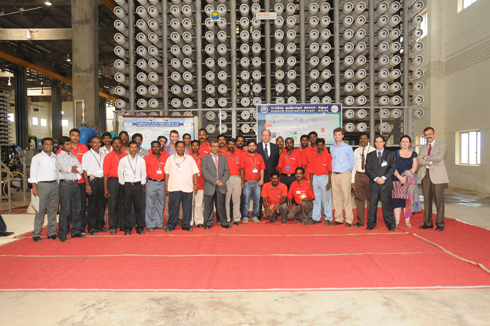
Befesa is involved in two different activities, industrial waste recycling and water, which in turn comprise various sub-activities. The industrial waste recycling segment encompasses steel waste recycling, aluminum waste and salt slag recycling and industrial waste management. The water segment, on the other hand, includes the engineering, procurement and construction (EPC) and water concessions divisions. The company manages over 2.2 Mt of waste, channeling in excess of 1.2 Mt into the production of new materials through recycling, thus curbing annual CO2 emissions by 0.7 Mt. Befesa is able to desalinate over 1.3 M m3 of water per day, enough to supply 8 M people.
The company enjoys a truly impressive international presence, with offices in 27 countries on four of the five continents. In Europe, Befesa’s steel waste, salt slag and aluminum waste recycling activity is carried out at treatment plants in Spain, Germany, France, Sweden, the United Kingdom and, from 2010 onward, Turkey. The industrial waste management unit has built up a significant presence throughout Spain and Latin America. With regard to the water business, Befesa boasts a prominent global presence, with important projects in China, India, North Africa, the Middle East, the United States and Latin America.
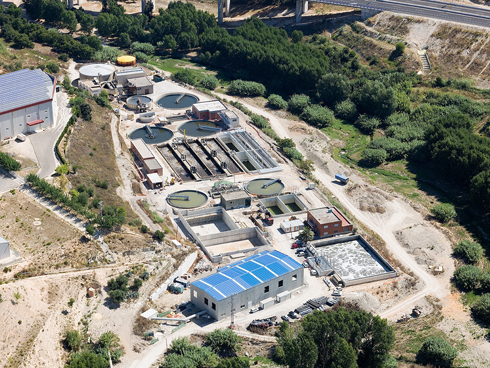
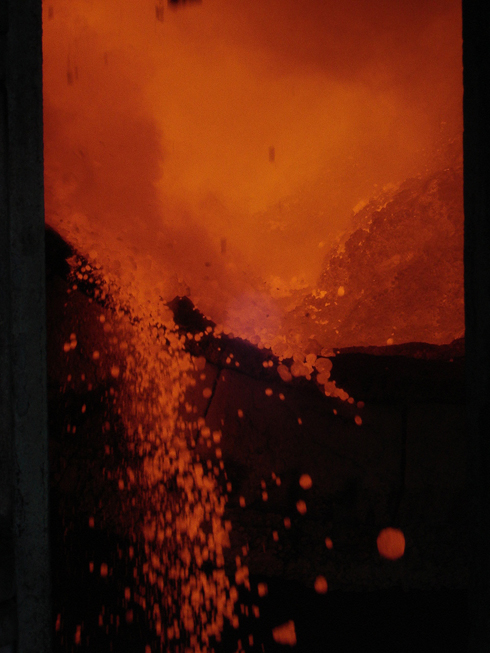
Befesa cuenta con un ambicioso plan estratégico para continuar creciendo en los mercados en los que opera, basado en un crecimiento tanto orgánico como inorgánico.
In order to continue growing in its existing markets, Befesa has an ambitious strategic plan in place based on organic and non-organic growth.
Growth in the steel recycling business has largely stemmed from organic growth in Europe and inorganic growth in other strategic territories. The greater the regulatory pressure from applicable environmental law, the faster this worldwide market grows. This pressure has reached different maturity levels in different parts of the world, with Europe being the most advanced. In the case of Befesa, the patented and proprietary Waelz-SDHL processes carried out at its plants afford the company hugely important energy savings, increased capacity and enhanced performance for zinc recovery, making it one of the most technologically advanced companies in the world within its sector. It also has an ambitious plan to step up its capacity and expand internationally.
The aluminum and salt slag recycling area is looking into new markets with huge potential, such as Iceland, Eastern Europe, Norway and the United States, and is similarly developing new recycling alternatives for waste managed through dumping. Befesa is also seeking to expand in its industrial waste management business.
In the water segment, growth is driven by two complementary factors: major contracts awarded under concession, which require a long-term investment; and the innovation as the differentiation strategy, improving quality and competitiveness of its assets.
To fend off competitors and remain at the forefront of the desalination sector, it is hugely important to offer a unique range of water treatment, waster reuse and hydraulic infrastructure products through continuous work in R&D&I and by devising new prototypes, and Befesa has made sure of this when setting up subsidiaries in countries such as India, China and the United States and when expanding into other promising territories, such as the Middle East, Brazil, Singapore and Libya.
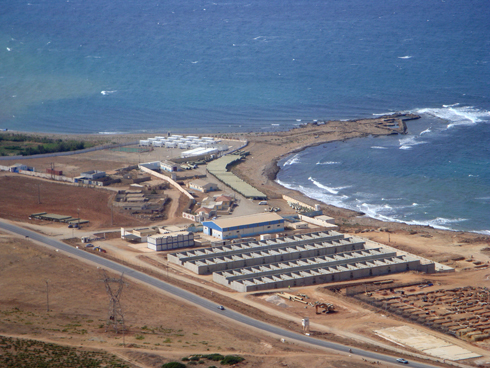
Befesa business has witnessed impressive growth over recent years in terms of staff and geographical scope, and this has been made possible thanks to the company’s highly qualified human team, which has lent its extensive experience to the different areas of business.
Befesa is committed to attracting and retaining human talent and this is one of the cornerstones underpinning its strategy of future growth. This is because the nature of the company’s activities, in which technological leadership plays a fundamental role, means that attracting and retaining both technical and commercial talent is key to ensuring future success.
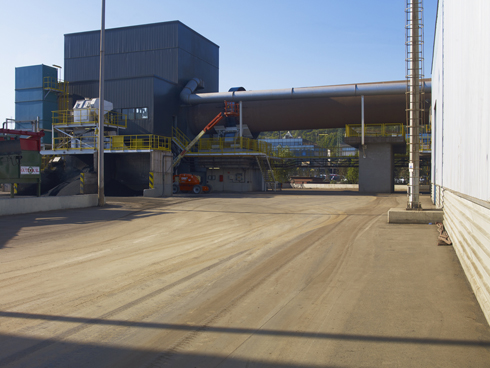
Befesa business is based on sustainable development, around which the company centers its activities and strategies. Because of this, the company’s mission and values reflect its firm commitment to financial and social progress, environmental protection and respect for fundamental rights. Through this business model, Befesa’s activities are aimed at:
- Creating long-term value for shareholders.
- Providing customer service.
- The professional and human development of its employees.
- Growth of the societies and communities in which it operates.
- Developing sustainable solutions for managing industrial waste and the integral water cycle, while fully respecting and protecting the environment.
- Reintroducing secondary raw materials into productive cycles.
- Waste-free production.
- Offering a new range of waste treatment services for industry.

Befesa’s main goals for 2011 include full integration of its steel dust recycling plant in Turkey, coupled with further expansion into the steel dust recycling market. Befesa will also keep its eyes over 2011 for possible opportunities for inorganic growth, particularly in the steel waste recycling sector. Moreover, the company will continue to focus on R&D&I over 2011, given that this is one of the building blocks for future growth.
In the industrial waste recycling and management sector, Befesa is fully committed to energy valorization, developing new waste treatment technologies, stepping up business in the integral waste management market, prioritizing valorization/recovery over elimination/disposal, and strengthening the company’s presence in those markets offering the greatest value-add.
In the water segment, Befesa intends to consolidate its presence in current geographies by strengthening relationships with the stakeholders, to up its presence in concessions in promising territories. It also plans to cement the structure and increase the visibility of the concessions division, enabling the company to develop and streamline this line of business to the fullest. Lastly, Befesa intends to continue investing in R&D&I with a view to cutting costs and developing sustainable solutions.
Befesa has built up a diversified customer portfolio, ranging from both regional and national public bodies to top-tier companies operating in important industries, such as the steel, automotive and chemical sectors. Befesa enjoys long-standing commercial relations with its main customers, thanks to the quality and regular control of its services and also its technological innovation.
